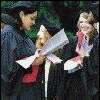 |
|
Sayonara Auto Pact?
WTO decisions on other federal economic programs -- Technology Partnerships to develop Canada's high-tech industries, the drug patent regime which lowers drug prices for Canadian consumers, and the two-tiered pricing system to support Canadian dairy farmers -- are expected in the coming weeks. What will the impact of these WTO rulings be?
York University experts in international trade, industrial and economic policy, trade law, and labour relations are available to discuss how these rulings may profoundly change the way Canada must formulate industrial policy. From various perspectives, they can address the question of whether Canada and other sovereign states can build their economies while respecting the rules of the new world trade order.
Since 1965, the auto pact has been a cornerstone of Canadian trade policy on which the industrial heartland of Ontario was built. It has ensured minimum levels of vehicle production in Canada by the Big Three U.S. auto makers--Ford, GM and Chrysler-- by granting them preferential tariff treatment. Other companies must pay a 6.1-per cent duty on any assembled vehicles they import from outside North America.
The WTO ruling is expected to support Japan's claim that Canada's automobile trade pact with the U.S. Big Three is discriminatory. Will this result in a flood of Asian and European imports? What will this mean for auto-parts makers and dealers, and workers in the auto industry? What has Canada's two-year battle for the pact at the WTO achieved? And what does this say about Canada's future ability to negotiate trade policy for Canadians?
Professor Harry Arthurs is professor of law and political science at York's Osgoode Hall Law School. He has published extensively on international law and globalization and can discuss the legal issues at stake for Canada as a member in the WTO. He can be reached at (416) 736-5407.
Professor David Barrows is Associate Director of the Master of Public Administration program at York's Schulich School of Business. He is an expert on Canadian trade issues and how governments formulate trade policy. As former Director of Trade Policy for the Ontario government from the mid- to late 1980s, he has a clear understanding of the workings of the provincial economy, and what adjustments are being made to accommodate the new global trading regime. He can be reached at (416) 736-2100, ext. 70477.
Professor Daniel Drache is a political scientist and director of York's Robarts Centre for Canadian Studies. He has written extensively on trade liberalization, particularly comparing Europe and North America with respect to state subsidies, and is recently examining the re-emergence of differing practices of state subsidization that target specific industries. Drache, the author of States Against Markets: The Limits of Globalization, can address the specifics of the WTO rulings and the broader issues of formulating industrial policy in the new trade environment. He can be reached at (416) 736-5415 or (416) 921-3332.
Professor James Laxer, a political scientist at York University's Atkinson College, is a leading expert on political economy in Ontario and Canada. He notes that the North American content requirement is the key discriminatory feature of the current NAFTA agreement covering Canada's auto trade with the U.S. and may be a future target of complaints at the WTO. Laxer will address both the micro and macro-economic implications of the WTO ruling. He can speak to how experiences in European economies portend increased mergers and/or shutdowns in the auto industry in North America and will address whether Canada can negotiate WTO-proof policies that ensure Canada's right to defend domestic production. He can be reached at (416) 736-2100, ext. 66462, or (416) 544-9941.
Professor Carla Lipsig-MummÈ is Director of the York University Centre for Research on Work and Society. An expert on labour unions and movements in Canada and internationally, her research areas include labour rights and globalization, and internationally coordinated labour action. She can be reached at (416) 736-5612 or (416) 539-8177.
Professor H. Ian Macdonald is President Emeritus of York, professor of Policy and Director of the Master of Public Administration program at the Schulich School of Business. He can address broad issues of globalization. His areas of academic research focus on the operations of government in Canada at all levels, public finance, international economic organizations and policy, and Canadian economic policy in a global environment. He can be reached at (416) 736-2100, ext. 55632.
Professor Michael Organ is director of York's Combinatorial Chemistry Facility and a leading researcher in the field of parallel synthesis in the discovery of new drugs and other chemical substances. Organ can address the subject of Canada's drug patent regime, what effect it has had on drug research in Canada and the positive impact of a WTO ruling against the existing regime. He will also speak to the need for government support of research and development in the high-technology sector, and the impact of a WTO ruling against the federal government's Technology Partnerships program. He can be reached at (416) 736-2100, ext. 55313.
Professor Bernie Wolf, a professor of economics and international business at the Schulich School of Business, has spoken and written extensively on the history and workings of the auto pact, the North American Free Trade Agreement, WTO procedures, and general issues of economic globalization. He will argue that the auto pact should be dismantled and address whether the new trade regime is subverting independent trade policy or merely modernizing outmoded trade practices. Wolf can be reached at (416) 736-2100, ext. 77933.
For more information, please contact:
Susan Bigelow |
|
|
| | Welcome to York University | Latest Release | Release Archives | |
![[to York's Home Page]](../../images/yorklogos.gif)
